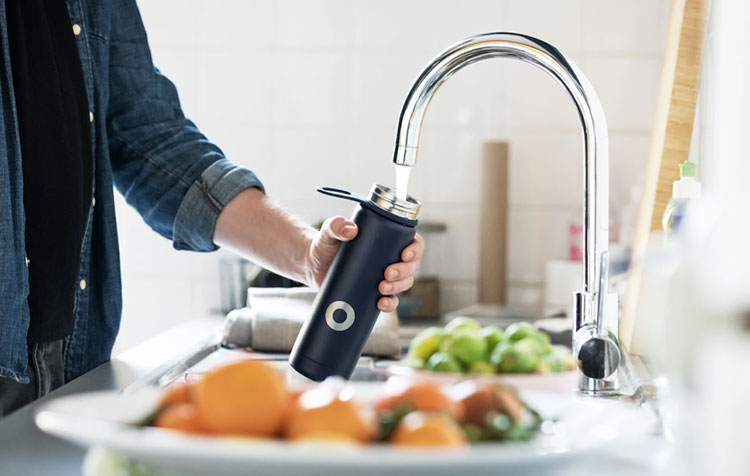Is tap water healthy, or not? If this question is on your mind right now, you've come to the right place. The preference for water from the tap helps, natural resources to spare, Avoid plastic wasteThe aim is to prevent entire regions from drying out and to save money and, not least, your back. After all, there is no need to lug heavy crates of beverages for comparatively expensive bottled mineral water.
But apart from the many Advantages of tap water - we hear from time to time about drinking water that is contaminated with pollutants and bacteria. So is it also absolutely harmless to health or possibly dangerous?
In this article I would like to answer this question about the most important food for us humans. You will learn everything about the quality, possible dangers, where the water is drinkable, how you can test it - and last but not least, whether tap water is healthy and a safe alternative to bottled mineral water. Let's go!
Here you can find a short overview in advance:
Notice: In our linguistic usage, tap water is often equated with drinking water. But not all tap water is suitable as drinking water. That is why I would like to differentiate clearly here and only speak of drinking water if it is actually drinkable.
Regulations - What is the quality of tap water in Germany?
The official report of the Federal Ministry of Health and the Federal Environment Agency on the quality of water for human consumption, certifies that the tap water of major drinking water suppliers has a "good to very good quality".
Tap water in Germany is groundwater treated in waterworks, as well as water from rivers, lakes or reservoirs. The quality is subject to the Drinking Water Ordinance, which has been in force since February 15, 1976, and whose extensions are based on the EU Drinking Water Directives. It is intended to protect us from the adverse effects resulting from water pollution.
"Pure water is the first and most important medicine in the world."
Slovak proverb (more at Water Quotes)
The compliance clearly defined limit values and health orientation values (GOW) for contamination, is subject to the strictest controls by the health authorities. For example, one liter of drinking water must not contain more than 0.01 milligrams (mg) of lead, 2 milligrams of copper, 0.02 milligrams of nickel and 50 milligrams of nitrate.₁ All microbiological and chemical parameters (with the exception of a few pesticide active ingredients) are complied with more than 99 percent of the time - and thus within the respective limits. It can therefore be assumed that the local tap water is healthy and therefore drinking water.
Hazards - What can contaminate tap water?
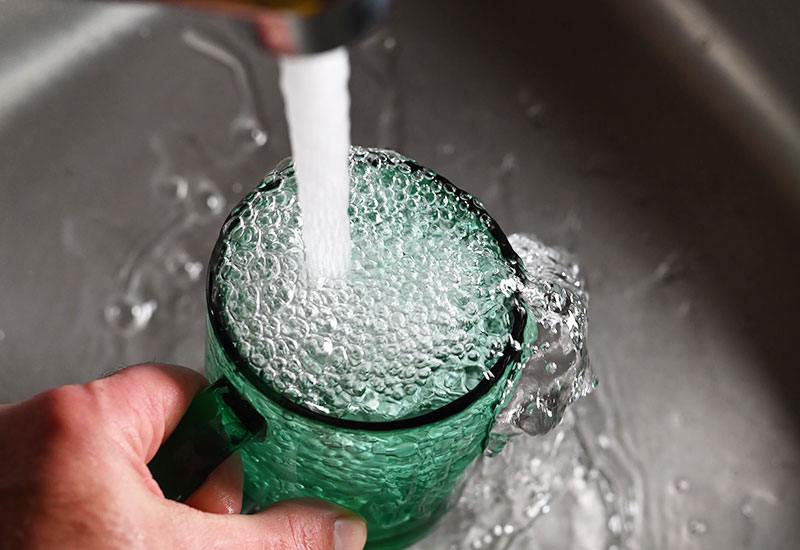
The Drinking Water Ordinance makes water suppliers in Germany responsible for the drinking water quality up to the house connection - however, the tap water must then master a few meters from the connection to the tap via the house's own pipelines. Even though lead pipes are no longer permitted, they still exist in many buildings. It may then be the case that the tap water is contaminated with the heavy metal and poses a health risk. In addition to Lead are, for example, also residues of Copper, aluminum, arsenic, cadmium, nitrates and Nitrite possible. Fortunately, the limit values here are clearly formulated.
Not to be forgotten are possible burdens from drug residues, hormones and especially from Bacteria, such as Legionella, which can cause dangerous pneumonia after ingestion.
Locations - Where can you drink the tap water everywhere without hesitation?
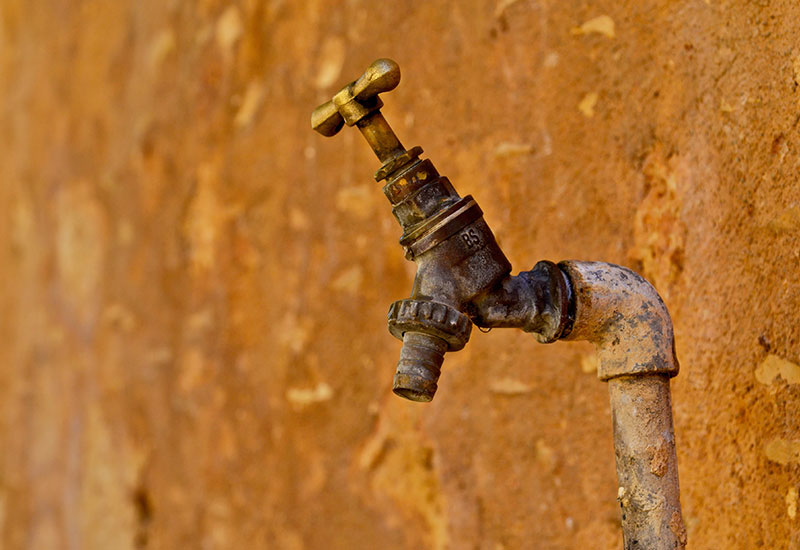
In Germany, tap water is generally drinkable. But what about abroad? Is the water from the tap drinkable in all countries? The answer is as clear as drinking water in Germany: no! After all, not everywhere has the reliable conditions we enjoy here - from water treatment systems to pipelines to quality controls. That's why - looking at all the countries in the world - there are big differences in tap water quality that you should know about before your next vacation or stay abroad.
Countries where you can drink the tap water
In Central and Northern Europe, tap water is generally considered safe. This means that you can fill up glasses and water bottles in, for example, the Netherlands, Belgium, Denmark, Norway, Sweden or Finland without any worries, unless there are explicit signs to the contrary.
This also applies in principle to highly developed countries such as Canada, Australia, Great Britain, Ireland, Japan, New Zealand and the USA. However, you should always check with locals and the Foreign Office before taking your first sip. In France and Spain, for example, the tap water is not drinkable in certain regions.
Countries where you should avoid tap water
The Centers for Disease Control and Prevention (CDC for short, an agency of the U.S. Department of Health and Human Services) gives a detailed list of countries where you should definitely not drink the water from the tap. These include all african, as well as almost all Central and South American (apart from Chile and a few others) and asian (apart from Japan, Saudi Arabia and some others) States.
Good to know: Did you know that around 2.2 billion people worldwide do not have access to clean drinking water?₂ What you can do about water scarcityyou can read in the linked article.
Get tested - How do I know if my tap water is healthy?
Thanks to clear regulations, the quality of drinking water in Germany is generally very good. Nevertheless, the water can be contaminated because, for example, the lead pipes contaminate the tap water on the last meters in the building to the tap.
Now polluted and unpolluted tap water basically do not differ visually from each other. So how can you find out if your tap water is healthy or unhealthy? Quite simply: man can have it tested by a laboratory. In addition to water hardness, oxygen content and pH value, they also examine exactly how contaminated the water from your tap may be with heavy metals and bacteria.
Also directly at your local water company you can usually submit a sample and learn more about the drinking water quality in your region.
Is tap water healthier than mineral water?
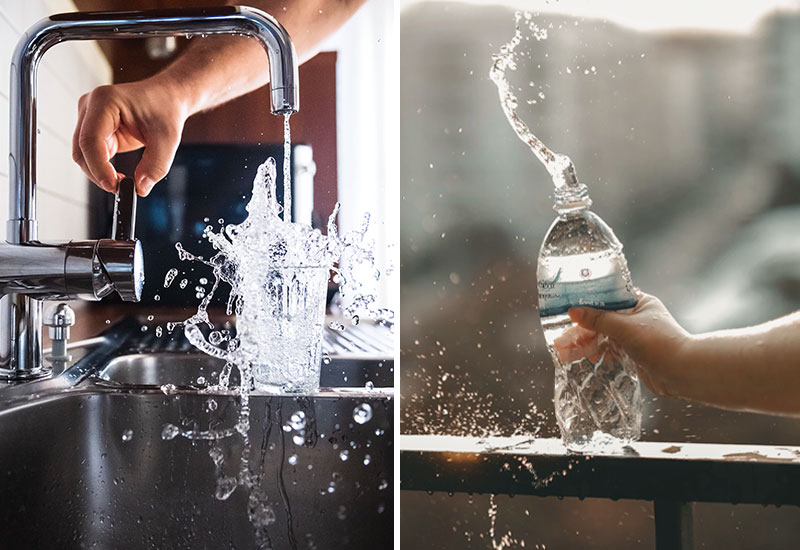
Tap water is therefore generally suitable for drinking. Whether tap water is healthier than bottled mineral water, However, there is no general answer to this question, because there are simply too many factors at play that can affect health.
However, the Quality of drinking water from the tap much more strictly monitoredthan in the case of mineral water. Tests the Product test foundation have shown that still mineral water in particular was quite often contaminated with questionable substances. Tap water fared much better, which is why they recommend it and declare it to be "inexpensive, ecological and safe".₃
Anyone who expects purity and wants to minimize the risk should therefore (at least in Germany) turn on the tap rather than reach for packaged mineral water.
Tips for unique, healthy tap water
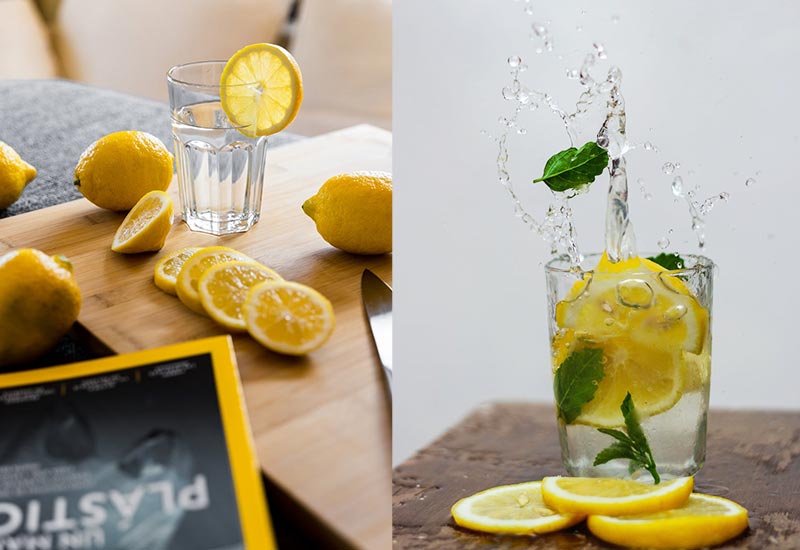
Even though you can drink and enjoy tap water in many countries around the world, I still have a few valuable tips for you. Tips that minimize the risk of contamination and make drinking tap water even more exciting and better. Here they are:
- Run: Saving water in the household is basically a good thing. But let the tap water run at least briefly before you drink it. Only when it gets really cold is it fresh. In this way, you can prevent exposure to legionella bacteria, for example, which thrive in warm, stagnant water.
- Maintenance: Provide regular maintenance and inspection by a plumbing contractor to prevent contamination,
- Taste: If your "Kraneberger" tastes too boring, make sure you upgrade. Learn here how you can Making tap water more palatable simply by following your heart.
- Drink bottle: Get a reusable water bottle and fill it up before you leave the house. On the road, you can refill it at bakeries and other partners using the Refill app - and avoid plastic bottles.
Do you have other valuable tips for better, healthier tap water? Then just write me a comment under this article.
Is tap water healthy? It depends!
Even though it is impossible to guarantee drinking water that is completely free of pollutants in an industrialized nation like Germany, we enjoy a real privilege here. The quality of drinking water is very good - and the risk of health-threatening contamination of tap water is close to zero. As a rule, we can drink and enjoy the water from the tap without worry and thus even Save money sustainably, protect the environment and save your back - while this is not possible in most countries of this world.
Do you have any questions, tips or experiences with tap water health you'd like to share? What's the drinking water quality like where you live? I look forward to your comments!
Stay healthy,

PS.: You know what else is healthy? The Forest bathing! What this is and how exactly it works, you will now learn in the linked article.
References:
₁ Federal Environment Agency: Quality of drinking water from central supply systems (as of May 21, 2021), available at https://www.umweltbundesamt.de/daten/wasser/wasserwirtschaft/qualitaet-des-trinkwassers-aus-zentralen#berichte-der-bundesregierung-zur-trinkwasserqualitat. [19.09.2022].
₂ T. Rohde: World Water Day 2022 - 10 facts about water (as of 23.03.2022), available at https://www.unicef.de/informieren/aktuelles/blog/-/weltwassertag-2022-zehn-fakten-ueber-wasser/275338 [19.09.2022].
₃ DER SPIEGEL GmbH & Co. KG: Germ contamination and residues - Stiftung Warentest advises tap water instead of mineral water (as of June 26, 2019), available at https://www.spiegel.de/gesundheit/ernaehrung/stiftung-warentest-raet-zu-leitungswasser-statt-mineralwasser-a-1274277.html. [19.09.2022].

